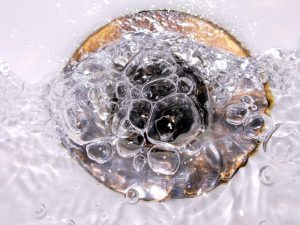Sometimes it’s hard to stay motivated when you're knee-deep in laundry or dishes, especially when the bathroom is right across the hall from both of those things. If you find yourself overwhelmed with the idea of scrubbing away at a tub full of calcium build-up or taking on another load of towels that need bleaching, here are some unexpected ways to keep your bathroom sparkling clean without breaking a sweat:
Shower Curtain Care
Mix one part water to two parts vinegar in a spray bottle and lightly mist your shower curtain liners with this mixture once every two weeks or so to kill mold, mildew, and bacteria on them. To make your shower curtain liner look and smell fresh, wipe it down with a sponge. Wipe down the entire surface of the liner, including between the plastic lining and the fabric curtain.
Don’t use harsh chemicals like bleach or ammonia – they can damage your liners over time (and make them more likely to grow mold). And don’t overdo it – too much water will make it harder for you to dry off when bathing!
Toilet Bowl Care
Mix 1/2 cup baking soda with 1/2 cup vinegar in a small bowl or glass jar, then pour into your toilet bowl. The mixture will fizz and bubble when it comes into contact with water, so be sure not to splash yourself! Let it sit for 10 minutes before scrubbing around with the brush or wand until all of the stains come off—don't forget about those hard-to-reach corners!
If there are still some stubborn marks left behind after scrubbing them out with newspaper or an old rag (which is better than using paper towels because they're more absorbent), try adding an extra splash of vinegar on top until everything gets nice and clean. Then rinse well before replacing the lid, so no one knows what happened today!
Refresh Grout
Baking soda, hydrogen peroxide, and warm water are all ingredients to get your bathroom grout as clean as a whistle.
Your grout is a porous material that can get dirty over time. The combination of baking soda and hydrogen peroxide will break down dirt in the grout between tiles, leaving it ready for rinsing down the drain. Pour each ingredient into a small bowl or container before starting your cleaning project, so you don’t have to make any additional trips back and forth to fetch supplies while working on your hands-on cleaning project in the shower or tub area.
Mix equal parts of baking soda and hydrogen peroxide (1/2 cup each) in a small bowl until they form an even paste—you may need to add more than one ingredient if there is more than enough already present for this mixture not to be too runny or thick. Be sure not to use too much of either ingredient because they will cause splashing when combined inside their respective containers!
Faucet Scrubber
If you’re like most people, you have a sponge to clean your shower and bathtub. But what about the faucets? If you haven’t used one for this purpose, it’s time to get one!
You can make your own with just two items: a sponge and a rubber band. Simply cut an edge off the sponge so that it fits over the end of your faucet, then secure it with an elastic band wrapped tightly around both items (like how you would wrap up Christmas presents).
This scrubber will easily fit into tight spaces and clean those hard-to-reach places where soap scum accumulates. Plus, because it's made out of soft material like sponges or microfiber cloths instead of hard plastic scrapers or wire brushes that scratch surfaces over time when used repeatedly—your hands won't get sore after all that scrubbing either!
Drain Cleaner
If your pipes are clogged, don't reach for chemicals to unclog them. Vinegar and baking soda are natural cleaners that won't harm septic systems and will help your drains stay clean. The combination works by breaking down the buildup in the drain, which can be caused by hair or soap scum. Vinegar also has antibacterial properties that help keep germs from growing in your plumbing system. And unlike chemical drain cleaners, vinegar is safe for all pipes of any material (except PVC), so it's worth keeping around just in case you need it!
If you want to use this method on other drains—like kitchen sinks or bathtubs—you'll still want to use a plunger first before pouring in any liquids because these can trap dirt inside even after being flushed away by hot water flowing through them during flushing cycles (which is what happens when using standard chemical cleaners).



.jpg)
.jpg)
.jpg)